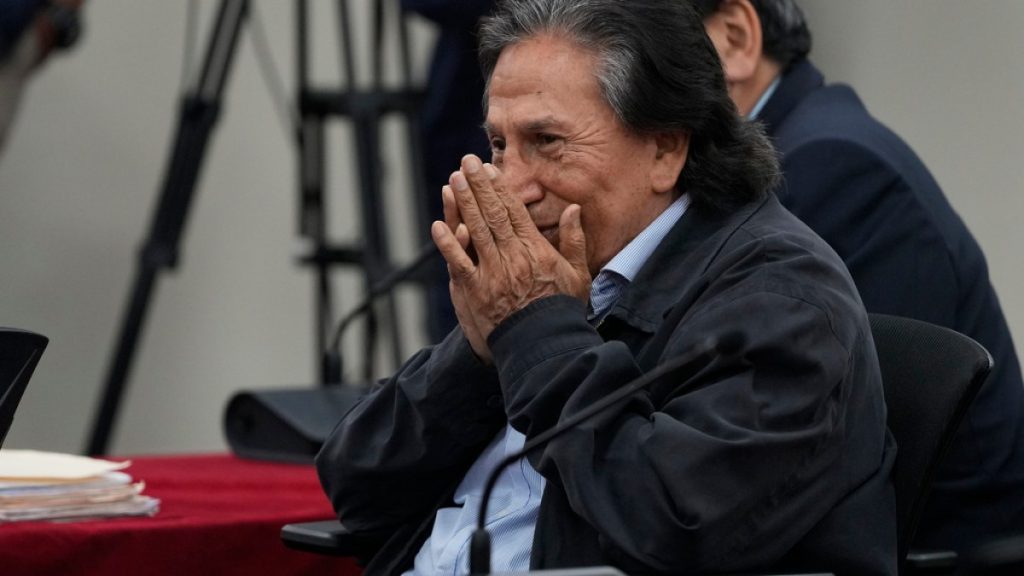Alejandro Toledo, the former President of Peru, has been sentenced to more than 20 years in prison for his involvement in the Odebrecht corruption scandal. This scandal, involving bribery and money laundering, has implicated numerous Latin American leaders in recent years. Toledo was found guilty of accepting $35 million in bribes from the Brazilian construction firm in exchange for a freeway construction contract during his time in office from 2001 to 2006. Despite pleading for leniency due to health issues stemming from cancer, Toledo was handed one of the harshest sentences yet in connection to Odebrecht’s campaign of bribery across the continent.
Toledo’s conviction came after a year-long trial where he consistently denied the charges of money laundering and collusion brought against him by prosecutors. He was first arrested in the United States in 2019 after Peru requested his extradition, leading to years of legal debate over his potential return to face trial. The Odebrecht scandal has had far-reaching consequences, resulting in the imprisonment of officials in other countries such as Panama and Ecuador. The construction company has since rebranded as Novonor and continues to face probes of corruption in various other nations such as Guatemala and Mexico.
Following his sentencing, Toledo will serve his prison term in a facility on the outskirts of Lima, specially built to house former presidents convicted of crimes. In addition to Toledo, two more former Peruvian Presidents, Pedro Pablo Kuczynski and Ollanta Humala, are under investigation in relation to the Odebrecht scandal. Another former President, Pedro Castillo, is also currently facing charges of “rebellion” after a failed attempt to dissolve Congress in 2022. The widespread corruption within the Peruvian government highlights the ongoing struggle to address systemic issues of bribery and political favours that have plagued the region for years.
The Odebrecht scandal has had significant repercussions in Latin America, leading to the downfall and imprisonment of numerous high-ranking officials across multiple countries. The case against Alejandro Toledo is just one example of how deeply rooted corruption has become within political circles in the region. Despite ongoing efforts to hold those accountable for their actions, the pervasive nature of bribery and money laundering continues to pose challenges to governments attempting to root out corruption. As more leaders face justice for their involvement in such scandals, the hope is that these cases will serve as a deterrent for future corruption within the region.
Toledo’s sentencing serves as a stark reminder of the consequences of engaging in corrupt practices, particularly when involving large international companies seeking political favours. The high level of trust in public officials and the institutions they represent has been eroded by cases like Odebrecht, making it essential for governments to take swift and decisive action to tackle corruption at all levels. As more leaders face accountability for their actions, the push for transparency and good governance in the region continues to gain momentum, offering hope for a future free from the grips of corruption and abuse of power.
The imprisonment of Toledo and other former Presidents implicated in the Odebrecht scandal sends a strong message that no one is above the law, regardless of their status or position within society. As Latin American countries continue to grapple with systemic corruption, the prosecution of high-profile figures serves as a critical step towards restoring faith in government institutions and upholding the rule of law. While the road to accountability may be long and arduous, the pursuit of justice for corrupt practices is essential for ensuring a fair and transparent society for all citizens in the region.


